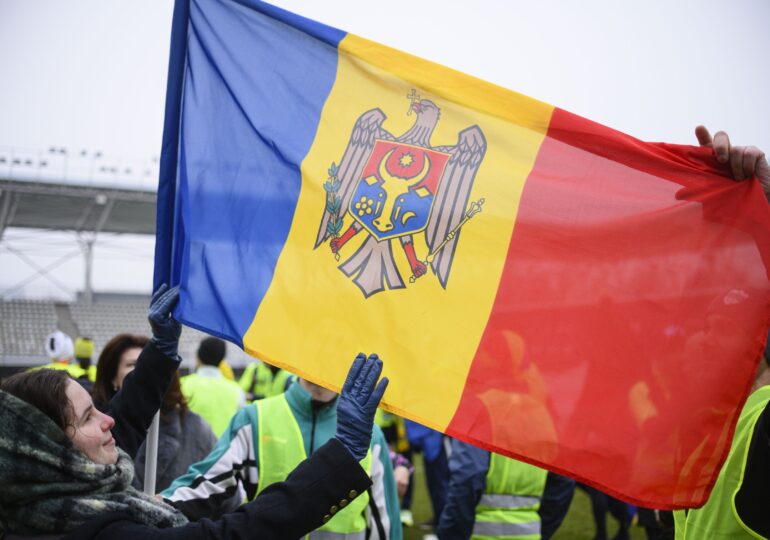Moldova is organizing parliamentary elections on Sunday, September 28, which President Maia Sandu has called „the most important in the history of the small country.” The outcome will determine whether Moldova, a state of 2.4 million inhabitants, continues its European path or risks returning to Russia’s sphere of influence.
„Europe cannot afford to lose Moldova,” warned Ukrainian President Volodymyr Zelensky at the UN days ago, referring to Georgia and Belarus, already dominated by Moscow.
PAS vs. Patriotic Bloc
The Party of Action and Solidarity (PAS), founded by Maia Sandu and currently led by Prime Minister Dorin Recean, is trying to maintain the parliamentary majority won in 2021. The party aims for EU accession by 2030.
In opposition is the Patriotic Bloc, an alliance of pro-Russian parties, led by Igor Dodon, a former president defeated by Sandu in 2020. The Bloc argues that European integration would threaten the country's independence and advocates for closer relations with Russia, as highlighted by Reuters.
Who Could Tip the Balance
The outcome could be decided by smaller parties. The Alternative Bloc, led by Chisinau Mayor Ion Ceban (banned in Romania) and former prosecutor Alexandru Stoianoglo, declares itself pro-European but criticizes the Government for "bad roads, low wages, and pensions." However, some analysts believe that the Alternative Bloc is a "spoiler party," meant to erode PAS votes while maintaining a bridge to Moscow.
Also in the equation is "Our Party," led by populist Renato Usatîi, who previously had ties with Russian nationalist politicians. Another unknown factor is the 277,000 voters from Transnistria, a pro-Russian separatist region where Russia is intensifying disinformation campaigns.
Diaspora, a Key Factor
With nearly one million citizens in the diaspora, the votes of Moldovans abroad could be decisive. In previous elections, they strongly supported PAS and the European direction.
At the same time, monitoring organizations warn that Moldova faces "persistent hybrid threats, led by Russia, including information warfare, illicit financing, cyber-attacks, and proxy mobilization," according to the Digital Forensic Research Lab, cited by The Guardian.
European Union as a Security Guarantee
European integration remains the dominant theme. Maia Sandu and PAS argue that EU accession is crucial for the economic future and resilience against Russian pressure. "There can't be a safe European Union, a safe Poland, France, and Germany without an independent Moldova," said Polish Prime Minister Donald Tusk last month in Chisinau, alongside the leaders of France and Germany.
However, for many voters, the economy is the main concern: high inflation, poverty, and endemic corruption fuel skepticism.
The 2024 referendum on EU accession barely passed, with just over 50% of the votes.
Russia Accused of Massive Interference
Moldovan authorities accuse Russia of attempting to influence the election through illegal financing, vote buying, fake news, and organizing protests. Prime Minister Dorin Recean recently stated that Moscow spent "hundreds of millions of euros to besiege the country."
This week, the police conducted 250 searches and detained 74 individuals for alleged Russia-backed destabilization plots aimed at provoking revolts. The Kremlin has dismissed all accusations, claiming that the Chisinau government is creating "anti-Russian hysteria" for political reasons.
Fragile Balance
Polls indicate a fragile lead for PAS, but several scenarios are possible. PAS could win, continuing the reform and European integration agenda. Most likely, a coalition will be needed, leading to tough negotiations and the risk of deadlock.
A victory for the pro-Russian opposition, supported by centrist parties, is not excluded, which would slow down the EU accession process and democratic reforms.

